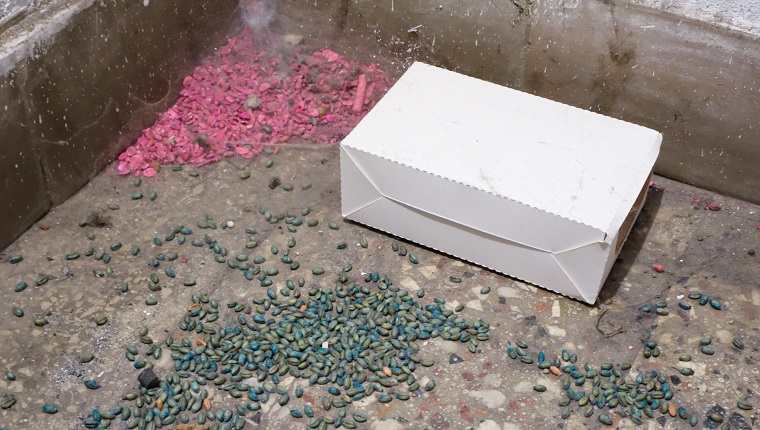Anticoagulant rodenticide poisoning in dogs occurs when a dog inadvertently ingests poisons intended to kill rats and mice. Anticoagulants work by stopping blood from being able to clot, which can result in excess bleeding for an animal, including dogs.
This type of poisoning might not manifest itself straight away, as the process of the poison can take a few days to activate. However, it is imperative that you seek medical advice as soon as possible if your dog ingests rodenticide.
If you see signs that your dog might be suffering from rodenticide poisoning, then you must consult your veterinarian for a proper diagnosis and course of treatment. Here’s what you should know about the symptoms, causes, and treatments of anticoagulant rodenticide poisoning in dogs.
Symptoms Of Anticoagulant Rodenticide Poisoning In Dogs
Anticoagulant rodenticide poisoning in dogs can result in a range of different symptoms. Some of the most common symptoms include:
- General weakness and lethargy
- Blood present in vomit
- Blood present in poop
- Nose bleeds
- Breathing difficulties (due to blood accumulation)
- Swollen belly
- Bleeding gums
Causes Of Anticoagulant Rodenticide Poisoning In Dogs

The cause of anticoagulant rodenticide poisoning is almost always a dog ingesting poison intended for mice or rats. Additionally, dogs who have a habit of chasing and catching rodents have a higher risk of suffering from rodenticide poisoning.
In rarer cases, dogs who mistakenly ingest human medication that includes some of the same ingredients used in rodenticide can also experience poisoning.
Treatments For Anticoagulant Rodenticide Poisoning In Dogs
If you bring your dog to your veterinarian with a suspected case of anticoagulant rodenticide poisoning, your vet will carry out a full physical examination. They’ll ask about recent events or situations where your dog may have come into contact with rodenticide poison.
The vet will also take blood and urine samples and test the time it takes your dog’s blood to clot.
In suspected cases of poisoning, it can also help to bring along any samples or packaging of rodenticide that your dog may have ingested.
When treating a case of rodenticide poisoning, a vet may administer Vitamin K to help with normal blood clotting functions, along with fluids and frozen plasma.
In some cases, vets may induce vomiting may be induced; although, this is a process that only a vet should carry. That’s because some rodenticides can also cause damage to the esophagus.
Generally, the best way to prevent potential poisoning is to make sure that your dog does not have access to any poisons or medicines around the house or garden.
Has your dog ever experienced anticoagulant rodenticide poisoning? How do you keep your dog from accidentally getting into rat poison? Tell us all about it in the comments below.




